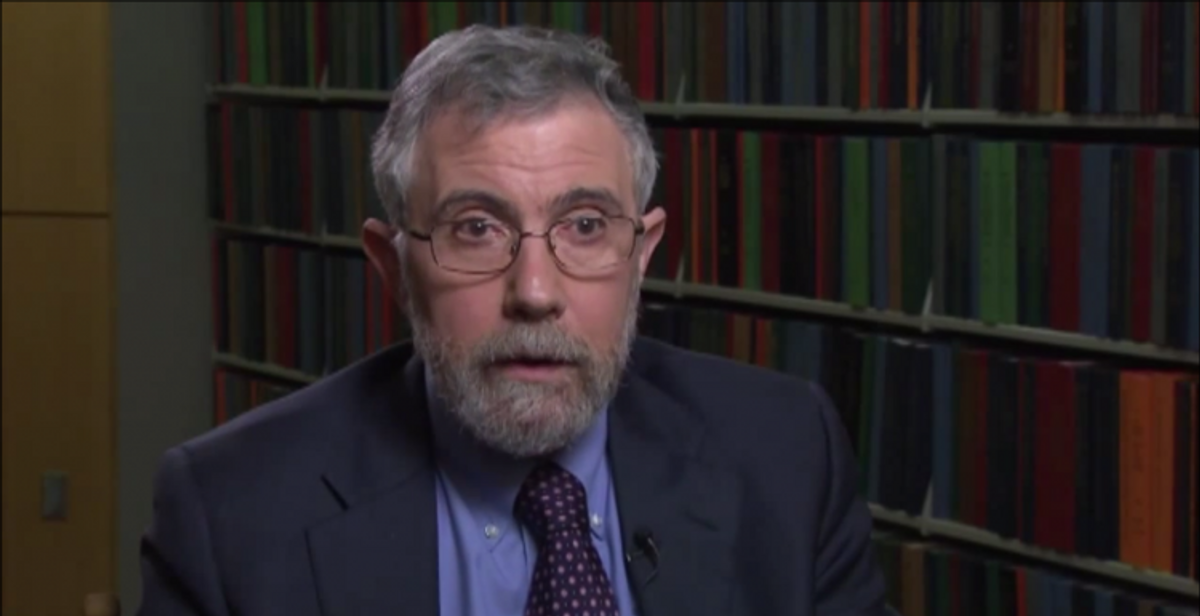In his latest piece for the New York Times, liberal columnist and celebrated economic thinker Paul Krugman weighs in on the sudden possibility that, after centuries of membership within the United Kingdom, voters in Scotland may soon vote to make their land an independent nation. His advice: "Be afraid, be very afraid."
"The risks of going it alone are huge," Krugman warns. "You may think that Scotland can become another Canada, but it’s all too likely that it would end up becoming Spain without the sunshine."
At the heart of it, Krugman's warning is not about the value of Scottish culture or any of the more on-the-ground level arguments that have characterized the debate in the U.K. Instead, Krugman is focused on how the Scottish independence movement has seemed to ignore one of the main lessons of the recent past, one that Krugman himself has been sharing repeatedly in his columns for at least the past five years: the danger of not controlling your own currency.
"The Scottish independence movement has been very clear that it intends to keep the pound as the national currency," Krugman writes, after noting earlier that voters' fear of economic dislocation is the main impediment to the independence movement's victory. "And the combination of political independence with a shared currency is a recipe for disaster," he continues. "Which is where the cautionary tale of Spain comes in."
Krugman next explains the recent economic history of Spain, a country that does not control its currency (it's on the euro), and whose economy has suffered massively in the years following the pop of the real estate bubble that ballooned in many Western economies — including Spain's — during the middle of the previous decade. "Spain ... bore all the costs of the housing bust on its own," Krugman argues, and ultimately faced "a fiscal crisis, made much worse by fears of a banking crisis that the Spanish government would be unable to manage, because it might literally run out of cash."
In the end, Krugman says, the result has been "a horrific depression — including youth unemployment above 50 percent — from which Spain has barely begun to recover."
Having laid out the Spain example, Krugman thus leaves Scottish voters with one final warning:
[E]verything that has happened in Europe since 2009 or so has demonstrated that sharing a currency without sharing a government is very dangerous. In economics jargon, fiscal and banking integration are essential elements of an optimum currency area. And an independent Scotland using Britain’s pound would be in even worse shape than euro countries, which at least have some say in how the European Central Bank is run.
I find it mind-boggling that Scotland would consider going down this path after all that has happened in the last few years. If Scottish voters really believe that it’s safe to become a country without a currency, they have been badly misled.



Shares